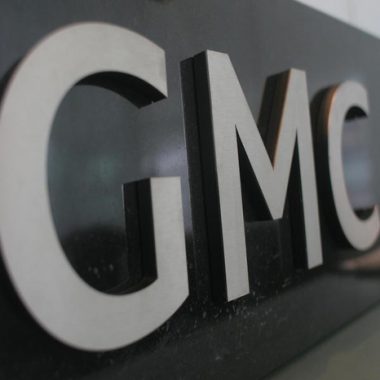Revealed: just one GP put through remediation following revalidation

Exclusive: Just one GP in England has gone through the remediation process as a result of revalidation in the first year of its implementation, Pulse can reveal.
Around 10,000 GPs have so far undergone revalidation in England, and Pulse’s findings show that the process is so far identifying fewer GPs as having remedial problems than PCTs’ use of appraisals and complaints.
Pulse reported last year that some GPs were spending 40 hours on their revalidation preparation, and Pulse’s findings around remediation numbers – obtained through a freedom of information request – has led GPs to question the value of the whole process.
GMC chair Professor Sir Peter Rubin told Pulse in 2012 that he expected ‘fewer than ten’ GPs to require remediation across an area with a population of five million, while figures from the National Clinical Assessment Service from 2011/12 showed that 42 GP required remediation that year following referral from PCTs based on appraisals or complaints.
Pulse revealed this year that only 23 GPs were not revalidated as they were part of an ‘ongoing local process’, which could involve remediation. However, the GMC does not hold figures on the exact number of doctors who have been through remediation, as this is a separate process to revalidation. Instead, responsible officers, based in local area teams, have the option of putting GPs through remediation if they feel it is warranted following the revalidation process.
The FOI request was answered by 26 of the 27 local area teams based in England, with only Shropshire and Staffordshire refusing to answer on the grounds that ‘the small number of GPs on the area team list could make those numbered identifiable’.
The number of GPs undergoing remediation as a result of revalidation in future years, as some have had their revalidation deferred and many of the first tranche of GPs undergoing revalidation were ‘GP leaders’.
But Dr Bob Morley, chair of the GPC contracts and regulations subcommittee, said the findings still questioned the value of the process.
He said: ‘It does raise queries about the value of a system that is showing GPs to be overwhelmingly fit for purpose, it is about time we put some trust in our doctors.’
‘What is revalidation costing GPs and most importantly what is the value added for patients?’
GPC negotiator Dr Peter Holden said he was ‘willing to take a bet’ that fewer than 30 GPs would be referred for remediation by the end of the first five year revalidation cycle.
He said: ‘You need to put this figure in perspective, many of those going through revalidation at present are the profession’s leaders and they are the ones that tended to be ready for revalidation.’
‘But I would happily predict that the number will be under three dozen in total.’
However, GPC negotiator Dr Dean Marshall said there is likely to be more cases later this year.
He said: ‘We are in the middle of the revalidation process and people are getting deferred so there may be some more cases in six to nine months’ time.’
GMC chief executive Niall Dickson said: ‘When we first introduced revalidation, we knew that the vast majority of doctors were good doctors. However, that is no cause for complacency. Revalidation – or rather the system of clinical guidance that underpins it – will provide assurance that only doctors who are competent and fit to practise are able to do so. The value of revalidation is not in the number of deferrals or doctors in remediation: it is in establishing a formal system for all doctors of appraisal, feedback and reflection. It also enables employers and commissioners to pick up any concerns early enough so that they do not impact on patient care, or, indeed, on the doctor’s career.’
Meanwhile, the GMC have revealed that 109 GPs risk being struck off having failed to respond to repeated requests for information to support revalidation.
The GMC has begun to take steps to remove the licenses of those doctors who have failed to respond.
However, it is understood that the majority of these GPs are retired or working abroad.
Please note, Niall Dickson’s comment was updated at 13:38 on 27/02/2014









